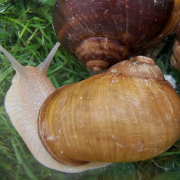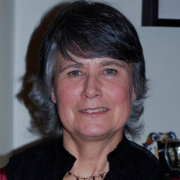Molluscs and Me, a Slow Process
It was a long slow painful process to move from writing textbooks about care to writing stories that would grip a reader. I spent 15 years writing expertly without emotion to engage students in academic debate. But I did collect case studies to show how it feels to be on the receiving end of care. People talked to me freely about their lives and their experiences to help students understand their point of view. I enjoyed collecting that material so much and it started to form a bridge for me into writing in a different way.
When I moved out of paid employment and started snail farming, I sat down early each morning to write about the things that had happened the previous day. It was a way of clearing my brain so I could think more clearly. When I saw business problems down on the page in front of me I could start to see ways round the blocks.
Difficulties that had seemed enormous could be broken down into manageable chunks. Expressing my emotional response in print was more constructive than picking up the phone and shouting. So the daily journal grew.
Trying to create a book ‘Molluscs and Me’, about setting up and running the snail farm, was much more difficult. For a long time I could see that it read like a textbook, an unemotional account of what happened. But recording things that people said to me, like the textbook case studies, lightened the mood.
Because the farm is open to the public, I’ve met many people from all over the world who told me how they collected snails from the wild as children and took them home to cook. Their recipes punctuate the chapters of the book. There were funny stories to tell too, about the chef who put 500 of my live snails into the kitchen sink and tried to wash them. They made a run for the high ground of course to avoid drowning. I wonder how long it took him to pick them off the ceiling.
Reading as a writer crept up on me. I joined a book group and was introduced to fiction that I would never have chosen to read but found that I enjoyed it. I began to notice how the stories were constructed, the language that was used to create tension, the way characters were drawn and how clues were carefully placed for me to find. I caught myself saying in discussion: ‘I think that character was just a plot device.’ Story telling was becoming embedded in my way of thinking.
 Joining a writing group was definitely a step in the right direction. Medway Mermaids (not the synchronised swimming club!) was the nearest women only writing group I could find. There is something special about women only groups that is difficult to explain. Looking back, the most important thing the group did for me was increase my confidence by enjoying my writing and telling me I could do it.
Joining a writing group was definitely a step in the right direction. Medway Mermaids (not the synchronised swimming club!) was the nearest women only writing group I could find. There is something special about women only groups that is difficult to explain. Looking back, the most important thing the group did for me was increase my confidence by enjoying my writing and telling me I could do it.
Gradually I started taking part in the writing exercises and sharing my writing tentatively with others. Our responses to trigger words and themes, that we worked at home, was like going to the gym, after the early morning workout of keeping the journal. Gradually I learnt to express myself more freely on paper.
Eventually I had 45,000 words of a book but I felt there was still something wrong with it. I was having difficulty deciding how much of my own personal story to tell. That’s when I decided to get some expert help and went to Cornerstones (www.cornerstones.co.uk). Philippa’s feedback on the structure and content was vital in helping me to put myself into the book in a way that I felt comfortable with.
I still find it easy to drop into that dry unemotional style that was so familiar to me in the academic world and I have an aversion to using adjectives and adverbs. I find it hard to write at length, so short and succinct is still an easier form – friends have suggested that I take up haiku! But those who have read ‘Molluscs and Me’ tell me I have successfully made that transition and told an engaging story.
—
Helen Howard is a snail farmer and writer who teaches for the Open University. Her non fiction work has been published by UK universities and voluntary organisations and her book Molluscs and Me will be launched in September. You can follow her on twitter @1snailview or visit her snail farm website www.snailfarm.org.uk or her blog www.molluscsandme.wordpress.com
Category: Being a Writer, British Women Writers, Contemporary Women Writers, On Writing, Women Writers
Comments (2)
Trackback URL | Comments RSS Feed
Sites That Link to this Post
- Featuring Women Writers on WWWB 2013 - Women Writers, Women Books | December 31, 2013

























Helen, Thank you so much for agreeing to write a post for Women Writers, Women Books. I personally enjoy the precise experience that our writers share. Your experience of shifting out of factual writing into more expressive story telling; journaling for emotional expression and insight; joining a women’s writing group that grew you in confidence and knowledge about your skill and abilities; and seeking editing help is valuable. Your preference for short succinct writing has a great value in our modern all too fast paced world. Haiku. Poetry. Flash pieces. Essays. Delighted that Barbara found you and that you were willing. – Anora McGaha, Editor